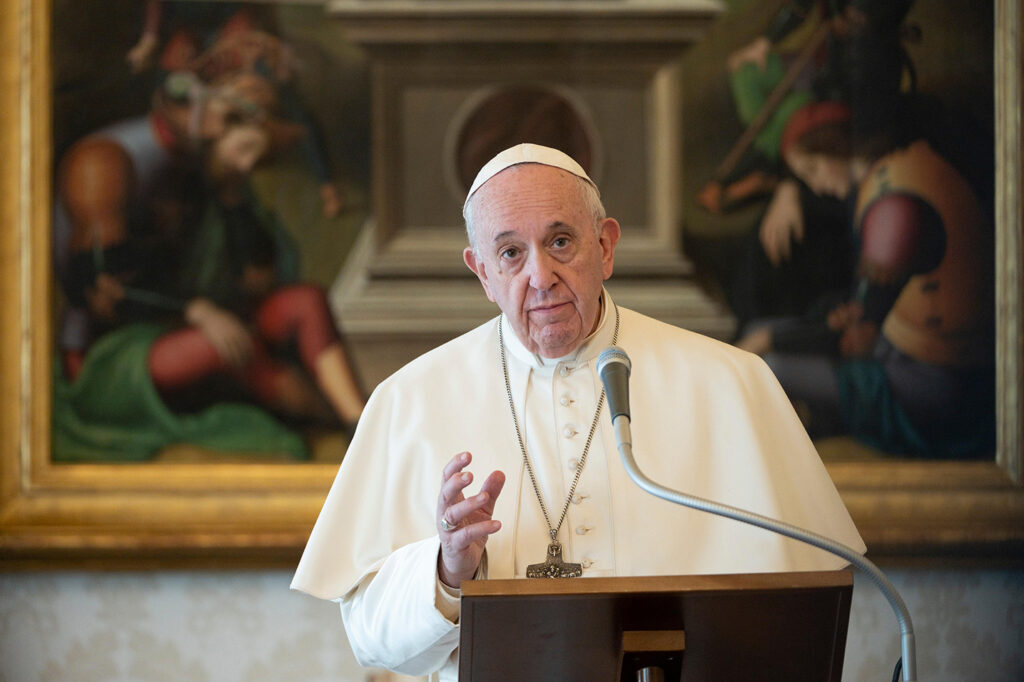WelCom May 2020:

Photo: Vatican Media
The aftermath of the coronavirus pandemic will be an opportunity to practice mercy toward the poor and those who are suffering, says Pope Francis.
The Pope was speaking at a live-streamed Mass on Divine Mercy Sunday, the second Sunday of the Easter season.
Noting that much of the world is preparing for a ‘slow and arduous recovery’ from the crisis, Francis cautioned that as things move forward, ‘there is a danger that we will forget those who are left behind.’
‘The risk is that we may then be struck by an even worse virus, that of selfish indifference,’ he said, saying this attitude is spread ‘by the thought that life is better if it is better for me, and that everything will be fine if it is fine for me.
‘It begins there and ends up selecting one person over another, discarding the poor, and sacrificing those left behind on the altar of progress,’ he said, insisting that the pandemic is a reminder to everyone that ‘there are no differences or borders between those who suffer. We are all frail, all equal, all precious.
‘May we be profoundly shaken by what is happening all around us,’ he said, adding, ‘the time has come to eliminate inequalities, to heal the injustice that is undermining the health of the entire human family!
‘Let us learn from the early Christian community described in the Acts of the Apostles. It received mercy and lived with mercy: “All who believed were together and had all things in common; and they sold their possessions and goods and distributed them to all, as any had need” (Acts 2:44-45). This is not some ideology: it is Christianity.’
Pointing to the day’s Gospel reading from John, in which the disciple Thomas does not believe that Jesus had actually appeared, the Pope said, ‘On this feast of Divine Mercy, the most beautiful message comes from Thomas, the disciple who arrived late.
‘He was the only one missing. But the Lord waited for Thomas,’ he said, noting that Jesus appeared to the disciples again with Thomas present, allowing Thomas to touch the wounds where he had been nailed to the cross.
‘Mercy,’ he said, ‘does not abandon those who stay behind.’
When Jesus was faced with Thomas’ disbelief, he ‘starts all over,’ by returning to the same spot he had appeared to the others and allowing Thomas to touch his wounds.
‘God never tires of reaching out to lift us up when we fall. He wants us to see him, not as a taskmaster with whom we have to settle accounts, but as our Father who always raises us up,’ the Pope said.
Source: Crux; Catholic News Agency